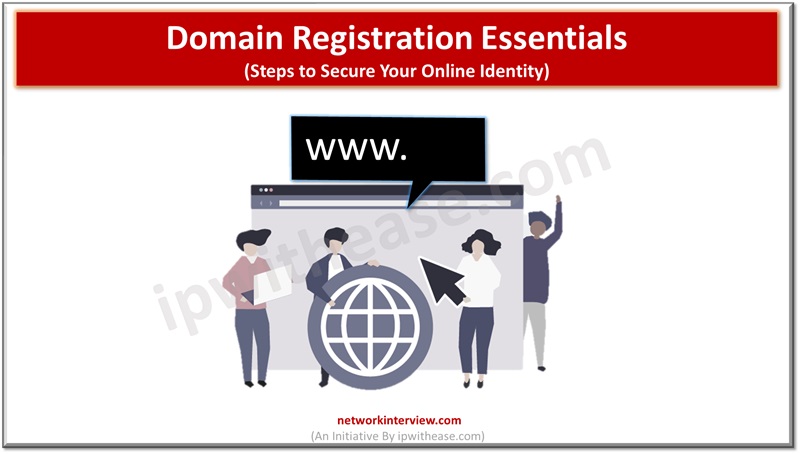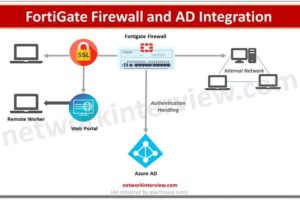
Domain Registration Essentials: Steps to Secure Your Online Identity
Do you want to secure your online identity and protect yourself from cyber-attacks? Domain registration may be the answer. Registering a domain name is often an essential step toward making your business or personal project official. An unforgettable, optimized URL helps potential customers easily find and access your resources while also building a reputable presence in the digital world – but what’s the process for registering one?
Here, we break down all the essentials related to domain registration: steps to choosing a memorable domain name, benefits of having web hosting, tips on picking out an affordable domain provider—and much more! Keep reading to learn how setting up successful website ownership can prove beneficial for both businesses and individuals alike.

Understand the basics of domain registration
Registering a domain name is a crucial step in creating your online identity. It is the first step towards building a website and establishing your digital presence. A domain name is essentially your website’s address, and it is important to choose one that reflects your brand or business. With domain name registrations, people not only secure their online identity but also make it easier for their target audience to find them.
Your domain name is also unique to you, meaning that no one else can register the same name, which helps to protect your brand from imitators. Understanding the basics of domain registration is crucial to starting your digital journey on the right foot.
Consider the right domain name
Choosing the right domain name is a crucial and exciting part of creating a website or launching a business. It’s a major factor in attracting visitors and building brand recognition. You want a name that’s memorable, easy to spell, and closely related to your product or service. Take the time to brainstorm and research potential domain names, and don’t be afraid to get creative.
Whether it’s a catchy phrase, a clever play on words, or a simple name, your domain should accurately represent what you have to offer and reflect your unique style and personality. With so many options available, finding the perfect domain name that best suits your website or business can be both challenging and rewarding.
Investigate all the available options for domains
When it comes to creating a website, choosing the right domain is crucial. The available options can seem overwhelming, but taking the time to investigate each one can make all the difference in the success of your online presence. From top-level domains like .com or .org to newer options like .io or .app, it’s important to weigh the pros and cons of each.
However, it’s not just about finding a domain that fits your brand – cost-benefit analysis is also an essential part of the process. Understanding the costs associated with different domains and their potential impact on your website’s traffic and SEO can help you make a more informed decision. Ultimately, the right domain will strike a balance between affordability, brand recognition, and functionality for your specific needs.
Ensure secure domain registration
As the digital world continues to evolve, the security of online information has become increasingly important. One crucial aspect of online security is domain registration. Fortunately, you can ensure that your domain registration is secure by utilizing WHOIS privacy protection and SSL certificates. WHOIS privacy protection allows you to keep your personal information private, which is vital in preventing identity theft and other forms of cyber attacks.
An SSL certificate, on the other hand, encrypts the data that is transmitted between your website and its visitors, making it nearly impossible for hackers to steal sensitive information. By prioritizing domain registration security and implementing these protective measures, you can rest assured that your online presence is as secure as possible.
Consider other essential features you may need
It’s important to consider all the essential features you may need. While you may have the basics down, like choosing a domain name and selecting a hosting service, it’s important to think about other functionalities that could enhance your website’s performance. One of these features is
- email forwarding, which allows you to direct messages from your website’s domain to your email account.
- Additionally, subdomains can be a useful tool for creating separate pages within your website.
Both of these features can help you create a more versatile and user-friendly website, so be sure to consider them as you develop your online presence!
Keep track of expiration dates
Managing a website can be a daunting task from numerous perspectives. One aspect of website management that is often overlooked is keeping track of expiration dates for domains. Not renewing a domain on time can lead to disastrous consequences, such as losing ownership of the domain.
Fortunately, there are straightforward ways to keep tabs on expiration dates to avoid such a mistake. By keeping a simple calendar reminder or setting up automatic renewals with your domain registrar, you can confidently focus on the rest of your website management tasks, knowing that you won’t lose your domain due to expiration. Don’t let an expired domain undermine your website’s potential – stay on top of those expiration dates!
Choose a reliable domain provider
Once you’ve decided on the perfect domain name for your website or business, it’s time to choose a reliable domain provider. A domain provider is a company that sells and manages domains for individuals and businesses. It’s important to do your research and choose a reputable provider with good customer service and competitive pricing. Along with a domain provider, you’ll also need to set up web hosting.
Web hosting is the service that allows your website to be accessible on the internet. The right web host can ensure that your site is secure and running smoothly, providing a positive experience for visitors. It’s important to choose a web host that offers features such as reliable uptime, data backup, security measures, and good customer support.

In summary, it’s important to think through all aspects of domain registration carefully and make sure you get the best options available to suit your needs. You should understand the basics of domain registration, pick out the right domain name, explore all the options available for domain registrations and cost-benefit analysis, ensure secure domain registrations with WHOIS privacy protection and SSL certificate, and also consider any other features you may need that will help your website or business succeed.
Additionally, remember to keep track of expiration dates so that your domains can be renewed on time. And remember, if you ever have a question or doubt about any aspect of domain registration – don’t hesitate to reach out! With the tips above and assistance from trusted resources, you can feel confident in getting set up with a reliable domain quickly and easily.



